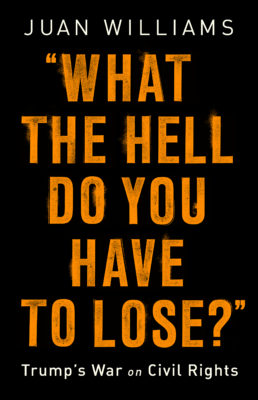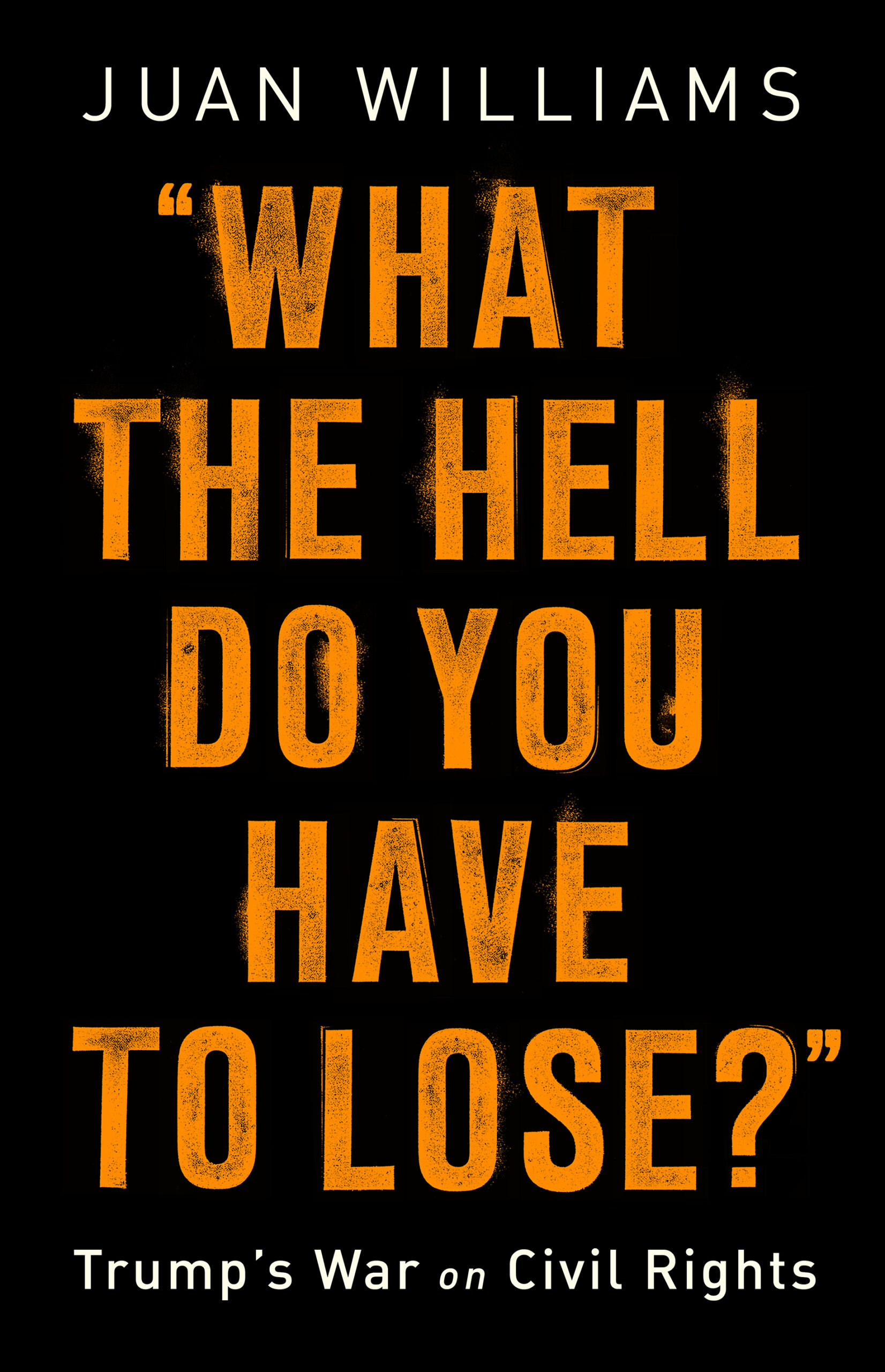There is still some hesitancy among mass media outlets and other civility-compulsives about whether Donald Trump is actually a racist or — out of a cynical appreciation for the expediency of racism — merely someone who talks like one; has acted like one throughout the entirety of his public and professional life; has surrounded himself with bigots from his butler to his administrative staff; and supports racist policies including ethnic cleansing.
This is a distinction without a difference. Senator Elizabeth Warren got some pushback on the left for saying something similar.
“Is the president racist?” CNN’s Manu Raju asked her.
WARREN: Look at his remarks. He’s made racist remarks and he’s been racially hateful to people. That’s what matters.
RAJU: But is he racist?
WARREN: I don’t have to look at his heart, that’s not the point. He behaves. Look at what he’s done, it’s racist what he’s done over and over and over. It’s not the first time.
I don’t know what this fascination with people’s hearts or souls is. But then, I’m a materialist. I care a lot more about people’s material conditions, their legal rights and justice in practice than I do the motivations of anyone involved.
“You are what you do repeatedly.” The why doesn’t matter.

But a book by Fox News contributor Juan Williams has had me completely reversing myself on this perspective, and by the end I was almost obsessed with what exactly is going on inside Williams’ head.
What the Hell Do You Have to Lose?: Trump’s War on Civil Rights is a much better book than I expected. Williams looks at advances black Americans made throughout the 20th Century but particularly during the Civil Rights movement, zooms in on the literal blood, sweat, tears, and corpses involved in making those steps forward, and how different aspects of the Trump administration reversed them during its first year-and-a-half in office.
My American history is still strongly influenced by a white perspective, and particularly a white male perspective, and more particularly the perspective for white men of means. The Gilded Age looks a hell of a lot different when examined from the perspective of Native Americans, black Americans, Chinese Americans, or poor people of any race trying to unionize.
A mat of hair, broken teeth, and torn flesh from a half-century of massacres can’t fairly be called “gilded”, even if you drip some gold on the top of it.
If you’re already steeped in black American history, Williams’ book may not have much to offer you, but most of us aren’t. Public education doesn’t do it for us, and popular history is all wars and aliens. So there’s some inherent value to this.
Even where I knew a bit already, like Trump’s father Fred getting arrested at an anti-Catholic KKK rally in 1927, I didn’t know Fred was notorious enough to have Woody Guthrie write a song about the family’s racist housing practices.
I suppose that Old Man Trump knows just how much racial hate
He stirred up in that bloodpot of human hearts
When he drawed that color line
Here at his Beach Haven family project
Williams’ ability to take past advancements made through the sacrifices of past giants and common folk to connect them to how the Trump administration and other Republican governments have rolled those advancements back is, I suppose, effective but not particularly interesting.
I may be in a bubble where it’s understood that a major Republican aim is to make it harder for black Americans to vote and participate safely in civic life. I am not aware of any examples of any state or local GOP working to make it easier for people to vote or help black people anywhere in any way. This should not be a revelation to anyone. It’s been trending this way since 1964.
Yet, unless he’s advanced to the point where he can just call on ghostwriters, Williams is a much better historical communicator than I’d realized.

He writes about the abduction and murder of three voter-registration volunteers in Mississippi by focusing first on how the news of their disappearance was received by their fellow Northern civil rights activists then revealing the details of the brutality they endured.
As drama and placing people in their shoes, this is tremendously effective.
He also describes just how much it took for the triumphs of the past to be triumphant. There was Robert Parris Moses enduring through beatings and concussion on a courthouse lawn just to register a few black Mississippians as was their Constitutional right.
There was James Meredith enrolling at Ole Miss in the face of every bureaucratic challenge and then a violent white mob that killed two and injured 300. There also was A. Philip Randolph’s fight to unionize the black Brotherhood of Sleeping Car Porters in the face of bribery and physical threats in the 1920s through heading up the March on Washington in 1963.
The narrative of the Civil Rights Movement we have regurgitated endlessly is the nonviolence of Dr. Martin Luther King Jr.
We leave out what that was in contrast to and other methods of responding to it.
White Freedom Rider James Zwerg does not appear in Juan Williams’ book, nor should he, but photos of the sort of brutality visited on him, as a relatively privileged white man, got out into the world. For most native black Southerners and for black and white activists from other parts of the U.S., they were injured or killed in darkness and silence. And still they came and worked because that was that it took to break something as awful as Jim Crow.
Civility could not on its own bring about civil rights.
Just for the historical sections, this book earns its keep.
It should take you down a path of greater discovery, if nothing else. So much of what we forgive about the past isn’t worthy of forgiveness because there were currents already existent that were arguing for progressivism even then.
They just were discounted and ignored by people in power who got to write the later narratives that will excuse them.
Which takes us back to Trump. Under Mitch McConnell, Senate Republicans held open a Supreme Court seat so they could let a Republican president fill it instead of anyone a Democratic president nominated.
Unlike liberal justices Ruth Bader Ginsberg or Stephen Breyer, the Republican justice Anthony Kennedy decided to retire strategically so a Republican executive and Senate replaced his seat with a younger, more reliable conservative vote.
Even if Breyer and Ginsberg make it to 2021 (or 2025), watch for Justice Clarence Thomas to step down before then to make way for a forty-something-year-old Federalist Society replacement.
Meanwhile, due to McConnell’s blocking of Obama nominees and acceleration of Trump’s own, at present one out of every four people on the federal judiciary were elevated there by Trump. Seventy percent are white men, and increasingly, they don’t feel comfortable stating that Brown v Board of Education was decided rightly.
Things are bad, they’re going to get worse, and “voting them out” only makes sense with an assumption of fair elections.
Who gets to decide what’s fair and isn’t, again?
Whether Trump is doing this because he’s manipulated by oligarchs with dovetailing interests, this is all his own master plan, or he doesn’t care so long as it’s only people he doesn’t care about being hurt, does it matter?
“You are what you do repeatedly.” The why doesn’t matter.
But why does Juan Williams do what he does on Fox News?
I don’t think the network’s name ever appears in the book.
Maybe that’s for contractual reasons, but it’s not in the index, and if it’s ever addressed that I missed, it’s only in passing.
Certainly, Williams never grapples with Fox’s place in American politics, functioning as a propaganda organ for Republican politics and now the Trump administration itself, both of which are by their nature anti-black.
Most importantly, Williams never looks at his role in all that.
In relating how Steve Harvey and a few other black entertainers were criticized for being foolish to meet with Trump and try to influence him for the better, Williams quotes then-CNN anchor Marc Lamont Hill’s criticism of the group.
It was a bunch of mediocre Negroes being dragged in front of TV as a photo-op for Donald Trump’s exploitative campaign against black people.
Williams largely agrees with this assessment, if forgiving the group for their naivete. But if Steve Harvey is foolish and in hindsight made a poor decision to meet with Trump once a few years ago, how much more so Williams?
He has explained his continued presence on the network he’s contributed to since 1997 by claiming that he presents opinions Fox’s viewers wouldn’t get otherwise. He knows there’s no difference between the most popular cable network on television and the administration, but he explains that he’s also inside that bubble, so he’s able to reach people who just disagree with him rather than hate him.
“It is difficult to get a man to understand something when his salary depends on not understanding it” as the Upton Sinclair quote goes, and as of 2010, after his anti-Muslim comments got him booted off NPR, Fox was paying Williams $2 million over three years just to come on their network and be in their bubble. Presumably, he’s more valuable now, but who knows.
Marc Lamont Hill, strangely enough, couldn’t manage to endure at Fox. They got rid of him after a short stint in 2009. The Root’s headline cheekily said he was fired for “not being Juan Williams”. Which may be exactly it. If a person actually does challenge viewers too effectively, actually has strong opinions they can express coherently enough to change viewers’ minds, why would Fox let them on at all?
All of this has me absolutely baffled by what is going on inside Juan Williams’ mind, or in his soul if that’s more appropriate.
This book — which again, is in itself actually good! — proves he knows more than enough to know that he is profiting from and enabling an endeavor that is awful to its core and absolutely without redeeming features.
He knows, but he keeps doing it anyway, to fill his role to be pointed at and shouted down, maybe not reviled by all of the audience watching him but certainly never making them uncomfortable enough to change their minds.
If there’s any justice to what from to outside appearances looks to be naked self-interest covered by the tiniest fig leaf of principle, it’s that the people most likely to have heard of Williams’ book and been interested in it were of the audience cultivated to hate him, and you see it in the general tenor of their reviews.
It’s not what the book deserves, but it may be what the author has earned.

